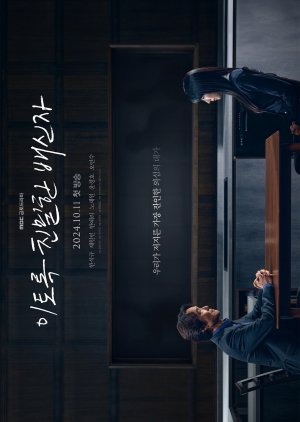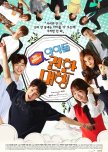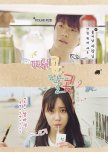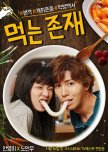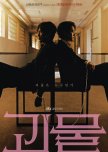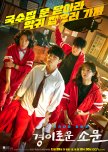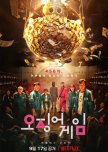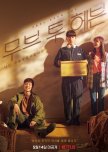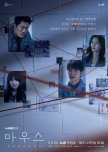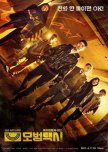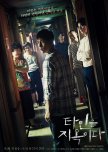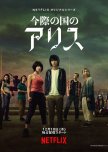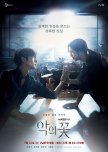
Good Enough
Korean Drama '' Doubt '' is an investigation drama that revolves around a mystery that may be incriminating the investigator's daughter.The drama has some strong characters who collide and provide enough twists and doubts to have the audience guessing what really is going on and what their true motives are.
The mystery itself was quite interesting and got darker and darker as the story proceeded. The ending was also quite unpredictable.
However, the series got a bit tiring towards the final episodes.
Finally, the performances were all great by everyone in the cast.
So, overall, seven out of ten.
Was this review helpful to you?

This review may contain spoilers
In this drama, you will doubt even yourself
Finally, I finished watching this drama. Why "finally"? Because the viewing experience was somewhat exhausting. The pace is slow, yet a lot of events take place, making this thriller different from others. It was undoubtedly interesting to see the genre from this perspective. This drama even made me doubt myself because I couldn’t fully understand my attitude toward it… Subjectively, for me, there was too much running around—the story could have been shortened to 8 episodes. By the end of the viewing, it was truly exhausting.I also have questions about the main character and her parents. Why did they never try to understand her? Why didn’t they at least try to learn more about people like her? Why did they try to change her instead of accepting her as she was? Such people exist, and they are not necessarily murderers, although their doubts had some grounds. This is not a complaint about the plot—on the contrary, the authors did a great job of showing how one should not act and what this leads to. Misunderstanding from the closest person, the inability to be accepted by one's own family, and the imposed belief that something is wrong with you—all this makes a person even more isolated. And in the end, when everything reaches a critical point, those same people begin to doubt their own judgment because of their prejudices.
I also lacked a deeper exploration of the main character—I would have liked more of her thoughts and better insight into what she feels.
The supporting characters (profilers) annoyed me a little, but I understood why the authors portrayed them that way. In the end, they also drew conclusions for themselves. Here, the opposite was shown—they did not doubt their point of view. In their situation, doubt was necessary to avoid making a mistake due to personal biases, but they failed to do so.
Conclusion from the story: People tend to hold biases and rush to conclusions, even when the situation is not straightforward. Even those who think analytically can make mistakes when guided by emotions or personal beliefs. Sometimes, doubts can prevent mistakes, but other times, they only arise when it is too late.
Was this review helpful to you?

For mystery fans
This drama is worth the watch if you are a fan of crime &/or mystery dramas.Good acting all around, with an engaging plot, but the character exposition is pretty poor.
The drama also omits lots of little pieces of information that would have made the tale of the events surrounding the whodunnit narrative more cohesive.
Was this review helpful to you?
For crime/detective series lovers, give this one a chance and you won’t be disappointed.
Was this review helpful to you?

A Weblike Slow Burn Psychological Thriller
This is a heavily character driven show. This is both the strength and the weakness.The plot structure is unbalanced chose consistent rising action, keeping us engaged with tension stemming from doubt.
On one end it's a whodunnit, on the other end it's an ensemble character study; of which through the eyes of the cops, the victims and the suspects we explore humans and the relationship between doubt and trust. This extends to the collogues we work with, the friends that we have, our family relations.
It is a pretty intricate, slow burn reveal of connecting threads, in which even the reveals are given in a way leaving us doubting. Everything is done in that manner. The camera shifts periodically allowing us to see the action from the perfective of a particular character, or in a manner that hides the actions of a particular character. So that we the audience to have an idea of what is being done, and what is happening but at the same time put in a position of doubt. Suspicious character is taking action X, but we are blind to their motives and goals. So, we carry along our suspicions and doubts as the various characters deal with their suspicions and doubts.
It's a pretty cool story telling gimmick, requiring investment with the characters and their actions. So, in certain ways, it feels different from most other investigative crime dramas. So those who like experiments, and atypical approaches are likely to enjoy this. Those looking for a more traditional, fast passed thriller will be disappointed.
Not a bingeable show, because there are few breaks for the narrative tension. It keeps you tense for pretty much most of the show. You get used to it. I think now that I have gotten to the last act this show will be the most fun for those who try to solve the crime before the heroes. Can you pick out the lies, can you pick out the truth? Can you intuit the motives behind the actions the characters are making.
There cannot be a season 2, there is nowhere to go from here. A show I enjoyed more than I thought I would and is stronger in the beginning than in the end. Novel approach to plotting, and great use of the camera and music to tell the story; making you a participant in the drama. Best parts are the story, plotting and use of the camera to aid in the story telling. The bad part is the constant tension. Overall, it's a good time, but one done you are not going back to it. 8/10.
Was this review helpful to you?
Great acting + terrible writing
The acting really carried this show. The writing started out good, they led up to the FL being a little off but they never dive into it. The absence of her story left little to doubt. Everyone says how weird she is but they never show any instance outside of her as a child.This could've been a movie or a 6 episode show, too many fillers. They hired great actors and got half of the story written decently.
Maybe my expectations were high because I'm biased (Chae Won Bin). I'd recommend this show if you have time to kill but wouldn't bump it up on your watchlist.
Was this review helpful to you?

Doubt: Perfect Crime, Perfect Drama, and The Price of Not Fitting In.
Doubt may wear the coat of a crime drama, but at its core, it’s a love story. Not romantic love—familial love, complicated love, the kind of love that doesn’t always come with hugs or forgiveness, but endures anyway. And when the final scene fades to black, it leaves you not with answers, but with peace.Han Suk-kyu—seasoned, subtle, and impossibly magnetic—plays a man hollowed out by decades of unanswered guilt. His silences are louder than most actors’ monologues. There’s a stillness in him that feels earned, like every step he takes is weighed down by memories he can’t speak of. He doesn’t need dramatic speeches or cathartic breakdowns to deliver emotional impact—one glance, one sigh, one hand reaching across a table is enough to crack you wide open. It’s a performance that doesn’t beg to be understood, yet somehow understands you.
And then there’s Chae Won-bin—a revelation. If Han Suk-kyu is the immovable mountain, she’s the weather crashing against it: volatile, brilliant, and unpredictable in the most human of ways. She plays Ha-bin not as a tragic character, but as a person—flawed, impulsive, tender, angry. Someone who has armored herself with survival instincts but never lost the child inside who just wanted someone to choose her. Chae Won-bin delivers one of the most mesmerizing performances I’ve seen in years. As Jang Ha-bin, she plays an 18-year-old girl born into the role of “monster” long before she could form an identity of her own. Monotone, still, and emotionally distant, Ha-bin could have easily become a flat archetype. Instead, Won-bin crafts a deeply internal world through every micro-expression and unblinking stare. She makes us ache for her, with her, and because of her.
Ha-bin walks a razor’s edge, constantly being measured against other people’s fear of her, while holding onto something that looks dangerously like hope. There’s a fire in her—not destructive, but defiant. A refusal to be erased. A stubborn belief that she is still human, even when the world tells her she isn’t allowed to be. Every time she’s misunderstood or mishandled, the drama quietly asks us: what do we owe to the people we’ve failed to protect? What happens when someone has been hardened by abandonment and then punished for the shape they took to survive?
Doubt opens with the familiar silhouette of a murder mystery—an abandoned corpse, a daughter suspected of killing her brother, and a father caught in the crossfire between his instincts as a legendary criminal profiler and his obligations as a parent. On paper, it seems procedural. In reality, it’s a requiem for every word a parent never said, and every child who waited too long to hear it.
At its heart is the aching dynamic between Jang Tae-soo, a father who once believed that keeping his distance would protect his child, and Jang Ha-bin, the daughter who grew up believing she was unworthy of warmth. Their relationship is a wound long scabbed over, but never healed. Tae-soo tiptoes around her like a man afraid of setting off a landmine—yet the landmine is of his own making. Years of avoidance, neglect, and silent accusations have built an emotional terrain so treacherous that even when he tries to reach her, his hands tremble with guilt.
Meanwhile, Ha-bin has lived her life under the microscope, examined like a strange insect rather than embraced as a human being. She’s brilliant, yes. Self-contained. But those aren’t threats—they’re defenses, honed from years of being seen not as a daughter, but as a question no one wanted to answer. She grew up in a home that made her feel like she was always on trial, waiting for a verdict that never came. And when her mother dies and suspicion turns toward her, it’s less a shock and more a confirmation: of course they think she did it. They’ve always thought she could.
This drama doesn’t ask who committed the murder. It asks: what do you do when the people you love are the first to doubt you? What happens when the narrative of your life has been written in pencil by someone else’s fear, and you’re finally trying to rewrite it in ink?
The genius of Doubt lies in how it frames this all within the bones of a suspense thriller. The plot moves with perfect pacing—no wasted scenes, no meandering detours. But the deeper you sink in, the more you realize: the real tension isn’t about who killed whom. It’s about whether this father and daughter can find each other before it’s too late. Whether love, when it’s been buried under suspicion for decades, can still be exhumed and revived.
Halfway through Doubt, you’re no longer just watching. You’re participating. You either hold the line for Ha-bin’s innocence with white-knuckled conviction, or you quietly slide into the abyss of suspicion alongside her father. It’s not the plot twists that will break you—it’s what the story reveals about your own threshold for trust. Jang Ha-bin isn’t a character so much as she’s a mirror. You’ll either see a monster staring back at you, or a young girl gasping for air in a house built from suspicion. Watching Doubt is like playing chess in a burning room—every move matters, but the smoke is getting thicker, and you’re not sure if you’re trying to win… or just survive.
You know every move matters, but the heat keeps clouding your judgment—and maybe that’s the point. Once the smoke clears, Doubt doesn’t ask whether you got the ‘right answer.’ It asks whether your answer says more about the story or about you. Jang Ha-bin isn’t here to be understood. She’s here to reflect. The real question is: when you look at her, do you see a monster? Or do you see a young girl clawing for air beneath years of silence? Whatever answer you give says far more about you than it does about her.
This is the story of a father and daughter trying—desperately—to unfreeze a relationship buried under years of unresolved trauma. Of a girl deemed monstrous before she could define herself. Of a man who wants to protect his child but no longer knows how.
Let’s talk about the visuals—because Doubt isn’t just watched, it’s felt in the bones, in the silences, in the empty corners of the frame. This drama is a masterclass in visual storytelling, particularly in how it weaponizes negative space, light and shadow, and compositional distance to amplify emotional and psychological weight. It doesn’t just show you conflict—it frames it, isolates it, stretches it across a wide, echoing void.
Take, for instance, the scenes between Ha-bin and her father, Tae-soo. From the very beginning, they are rarely framed in close proximity. Instead, the director opts for wide-angle shots—those cavernous, spatially exaggerated compositions that make even a simple dinner feel like an interrogation. Often they sit across from each other at a long dining table, the kind of shot that turns familial warmth into emotional warfare. It’s not just dinner. It’s a standoff. And the food between them may as well be evidence in a case neither of them wants to prosecute.
Even when they’re not physically together, their separation is visualized through clever use of light and dual shadows. One early scene shows them in entirely different locations—Tae-soo on a lonely street, Ha-bin in a dim hallway—yet both are framed with double shadows cast behind them, thanks to streetlights and passing cars. You might miss it if you’re not paying attention, but those twin silhouettes speak volumes. These are two people fractured within themselves, doubting not only each other but their own instincts. The shadows are metaphors for their inner splits—the versions of themselves they’re trying to protect, and the versions they’re afraid they’ve become.
The drama is deliberate—almost surgical—in its use of negative space. It isn’t afraid to leave the frame empty. In fact, some of the most unsettling moments happen when the subject is barely there at all. Characters are placed at the extreme edges of the screen, swallowed by cold, blank living room. Or worse—entirely out of focus, their presence only visible through a reflection in a mirror, or the slight shift of a curtain. It’s not just aesthetic; it’s thematic. Doubt uses visual distance to reinforce emotional distance, and by the time you notice it, you’ve already started to feel it in your gut.
In Doubt, silence is loud, shadows are characters, and empty space is never truly empty. It’s filled with everything the characters can’t say, every unspoken accusation, every withheld apology. The camera doesn’t just record—it judges, questions, and sometimes even condemns. You don’t just watch Doubt. You navigate it—frame by frame, breath by breath, hoping that in all that stillness, you’ll find something true.
If the visuals in Doubt draw you into its emotional geometry, the sound design is what keeps you there—trapped, breath held, heart in your throat. Doubt doesn’t rely on sweeping musical scores or melodic ballads to cue your emotions. Instead, it leans into silence, minimalism, and raw audio textures to weaponize the mundane.
In previous reviews, I usually scored music based on the presence and quality of a full vocal OST. But Doubt completely redefined how I evaluate sound in K-dramas. Its impeccable use of silence and ambient detail creates a kind of psychological pressure that transcends conventional scoring. I’ve since adjusted my rubric to recognize this level of auditory storytelling, because what Doubt achieves isn’t just sound—it’s narrative subtext.
What Doubt understands better than most thrillers is that noise isn’t the opposite of silence—tension is. And silence, when handled right, is far more terrifying than any dramatic swell. The absence of music isn’t a void; it’s a spotlight. It forces you to confront the weight of the moment. It makes every word, every breath, every glance hit harder.
The sound team didn’t just enhance the atmosphere—they became co-conspirators in the story. They lured us in with quiet, deceptively soft sonic cues, only to pull them away at the exact moment tension peaked. Silence in Doubt is not absence—it’s precision. It’s control. It’s dread served cold.
This isn’t an OST. This is a soundscape designed to play you like a fiddle. And it deserves a 10 —because it didn’t support the story, it became it
One of the most remarkable sleights of hand in Doubt is that even its supporting characters feel like central threads in the tapestry—never afterthoughts, never filler. Roh Jae-won and Han Ye-ri, as profiler rookies Gu Dae-hong and Lee Eon-jin, become more than just assistants in the investigation. They are narrative instruments—deliberately positioned to mirror the internal conflict of Tae-soo himself.
Dae-hong and Eon-jin represent two diverging worldviews operating within the same system. Eon-jin is clinical, data-driven, emotionally cautious. She sees Ha-bin through the lens of probability and pattern recognition. Dae-hong, on the other hand, is intuitive and heart-forward. He listens not just to what people say, but how they sit in their own discomfort. The tension between the two isn’t loud, but it’s deeply felt.
In many ways, they are the personified yin and yang of Tae-soo’s psyche. Eon-jin reflects his relentless pursuit of facts, logic, and procedural correctness. Dae-hong, meanwhile, channels the side of him that dares to see people not as puzzles to solve, but as fractured humans reaching out in pain. They become living metaphors for Tae-soo’s own battle: to see Ha-bin as either a monster in a mirror or a young lady screaming for someone to believe her.
Gu Dae-hong, especially, becomes an unexpected anchor in this psychological storm. His quiet line—“Police officers are human too”—isn’t tossed in for flavor. It’s the thesis statement of the drama’s entire moral argument. In a world obsessed with being right, Dae-hong reminds us that being human matters more. It’s not weakness. It’s the very thing that grants us the power to break cycles of violence, cruelty, and suspicion.
What makes him stand out isn’t grand speeches or heroic acts—it’s his refusal to join the mob of suspicion. While others in the unit jostle for confirmation bias, looking for ways to close the case and move on, Dae-hong lingers. He listens. He doubts—but not in the corrosive way the title suggests. His doubt is a gentle thing, a protective instinct that shields the humanity of others rather than strip it bare. He is, quite literally, the pause in the room full of noise.
In a drama that often feels like everyone’s wearing a mask—posturing, guessing, interrogating—Dae-hong’s presence is like walking into a room with an open window. It doesn’t mean the outside world is safe, but it means someone remembered to let the air in. Every time the narrative winds too tightly around suspicion and procedural coldness, Dae-hong releases some of that pressure. He makes it possible for empathy to breathe.
To be clear, Eon-jin isn’t the villain in this forked road—far from it. She’s methodical because she has to be. In a profession that demands clarity in chaos, her precision is her armor. Eon-jin carries her own kind of burden: the weight of knowing that even a momentary lapse in judgment can cost lives. Her suspicion of Ha-bin isn’t born from cruelty—it’s caution sharpened by experience. Beneath her cold exterior, there’s a flicker of something quieter and far more painful: doubt not about the facts, but about what those facts might miss. She sees that Ha-bin doesn’t fit, and that contradiction unsettles her. There’s almost a desperation in her logic—not to be right, but to make sense of something that refuses to obey the rules she lives by. If Dae-hong offers grace, Eon-jin offers restraint. And both are necessary. Without her, the story would lose its shape. Without him, it would lose its soul.
At the end of this quietly breathtaking journey, Doubt leaves behind more than a resolved case file—it leaves a bruise on your conscience. This isn’t just a murder mystery with a profiler dad and a daughter caught in a spiral of suspicion. It’s a drama about what happens when the people who are supposed to protect you start looking at you like you’re the problem. It’s about the damage done when trust erodes—not all at once, but little by little, like rust under paint.
In another writer’s hands, this could’ve been a sensationalist thriller, all red herrings and plot twists. But Doubt never stoops to theatrics. It’s quiet, unnerving, and deeply intimate. It weaponizes silence. It lets tension breathe. It asks you to sit with discomfort instead of rushing toward easy absolution. And in doing so, it becomes something more powerful than just a drama—it becomes a slow-burning dissection of generational trauma, institutional failure, and the terrible ache of wanting to believe in someone again.
But the real tragedy Doubt exposes isn’t just the trail of corpses left behind in the case files. It’s the slow, quiet execution of someone’s character over the years—someone who might be innocent, who might just be different. A child mislabeled as a threat, a girl raised under the weight of suspicion, a life corroded by sideways glances and whispered what-ifs. The horror isn’t just in what happened—but in how ready the world was to believe she could do it. Not because of evidence. But because of who she was. Because of how she wasn’t like the others.
That’s what Doubt understands so well: justice isn’t just about solving crimes. It’s about seeing people clearly, even when it’s hard. Especially when it’s hard.
Because sometimes, the cruelest thing isn’t being found guilty. It’s never being seen as innocent in the first place.
Full review: https://byrei.ink/2025/07/27/doubt-2024-review-a-masterclass-in-suspicion-silence-and-second-chances/
Was this review helpful to you?

"Facing doubt"
The performances of all the actors from the first episode to the last episode were excellent and they reflected the tension, excitement and cinematography wonderfully on the screen. My favorite character from the Kdrama was Koo Dae Hong. The Kdrama's song was also very good. I think this Kdrama could have continued for a few more episodes. I think they tried to end it quickly. I think it could have been 10/10, like "Memoir of a murderer".Was this review helpful to you?
A drama that isn't average
The Kdrama Doubt is a masterclass in crime thriller storytelling, keeping audiences on the edge of their seats from start to finish. The drama excels in weaving a complex web of mystery, tension, and unexpected twists that challenge even the most seasoned fans of the genre.One of the standout aspects of *Doubt* is its ability to surprise. Many crime thrillers follow predictable patterns, allowing viewers to piece together the mystery long before the protagonists. However, *Doubt* breaks this mold. It keeps you guessing until the very end, with each episode revealing layers of deception, hidden motives, and shocking revelations. For the first time in a long while, I found my predictions completely off the mark—a testament to the series' clever writing and intricate plot design.
The characters are another strong suit of the drama. Each one is crafted with depth, allowing viewers to connect with their struggles, fears, and ambitions. The protagonist’s relentless pursuit of the truth serves as the beating heart of the story, while the antagonists' cunning adds a chilling edge to the narrative. Their interactions are not just entertaining but also emotionally gripping, highlighting moral ambiguities and the cost of justice.
Visually, the cinematography enhances the suspense with its dark, atmospheric tones, while the haunting soundtrack perfectly complements the mood of the series. The pacing, too, is spot-on—never too rushed, yet intense enough to keep you invested.
In conclusion, *Doubt* is an exceptional drama that offers a refreshing take on crime thrillers. It engages your mind and emotions, leaving a lasting impression. If you're looking for a show that will keep you guessing and challenge your expectations, *Doubt* is a must-watch.
Was this review helpful to you?
Doubtful
The characters in Doubt are monotone and boring. Maybe the director is tryong to create a certain tone for the show. To me, it just adds to the show being drawn out and not very intriguing. Each episode is much of the same. I keep hoping it will get better because I really liked the ML in Dr Romantic. I will keep watching until the end and hope the ending episodes will have me wanting to retract this review.Was this review helpful to you?

This review may contain spoilers
Do Potencial ao Desleixo: Um Drama que Não Convence
"Um drama com potencial que acabou sucumbindo sob o peso de seus próprios erros". Essa frase resume bem o que foi a experiência de assistir a esta produção. A sinopse prometia um thriller psicológico com camadas, mas o que recebemos foi uma execução que oscilou entre o clichê e o desleixo. Han Seok Kyu, um ator indiscutivelmente talentoso, foi completamente subaproveitado. Seu protagonista, ao invés de conduzir a narrativa, parecia ser conduzido por ela. Passivo, quase apático, ele frequentemente era eclipsado pelo elenco de apoio. Para um perfilador, sua falta de perspicácia em momentos-chave foi frustrante — a antítese do que se espera de um personagem central em uma história como essa.Já Noh Jae Won, como o inspetor Dae Hong, entregou uma atuação que me deixou dividido. Em alguns momentos, sua empatia era comovente; em outros, suas interações, especialmente com o garoto, pareciam desconfortáveis, até mesmo deslocadas. E o final? A revelação da verdadeira assassina foi uma piada de mau gosto: uma expressão debochada na sala de interrogatório e tudo se resolveu? Preguiça pura de roteiristas que claramente esgotaram sua criatividade muito antes do episódio final. Além disso, o arco principal pode até ter encontrado alguma conclusão, mas os secundários foram simplesmente abandonados. Min A foi morta por quê? Porque Kim Seong Hui precisava culpar o professor? E qual era o propósito disso? A lógica desses eventos é tão inconsistente quanto o roteiro que os sustenta. O professor, aliás, prometeu uma revelação que nunca veio. Estamos todos aguardando.
No fim, o drama começou com uma boa premissa, mas terminou de forma desleixada e esquecível. É o tipo de produção que faz você questionar se o tempo investido realmente valeu a pena. Para mim, infelizmente, não sei o que pensar.
Was this review helpful to you?

This review may contain spoilers
Até que me surpreendeu mas...
Eu gostei muito do drama e me surpreendeu muito de modo geral. Mas em alguns momento eu achei um pouco previsível principalmente o fato da Ha Bin ser a culpada de tudo e suspeta em tudo momento, apesar de ela sempre estar no local errado e na hora errada mas vou ser sincera eu entendo porque o Jang Tae Su desconfiou da Ha Bin. Não só quando ela era pequena mas já adolescente. Só não entende o porque dela sempre ser retratada como "diferente", "estranha" (Acho que poderia ter uma explicação para isso). E acredito que tudo que aconteceu do começo do drama até o final foi por um motivos: Era só perguntar para ela... Ha Bin, foi você?É horrível fazer isso?! Sim, mas era mais simples do que duvidar da menina o tempo todo e se meter em tantos problemas, para tertar "protege-la", "livra-la" ou até provar que foi ela" até o amigo dela sabia que ela não era assim, ou não faria algo assim.
Acho que os policiais também aprenderam uma grande lição o policial Koo Dae Hong à não confiar nas pessoas e não se deixar levar pela emoção(mas eu entendo ele ) já à policial Lee Eo Jin a ser menos racional e ver além do que está na frente dela(ainda acho que ela deveria ter pedido desculpa, por ser tão, tão, chata!! Mas também entendo ela).
Já a Kim Seong Hui, que mulher inteligente e manipuladora, não teve ninguém nesse drama que ela não conseguiu enrolar em algum momento, inclusive o coitado do
Kwon do Yun (eu fiquei com muita dó, juro!! Ele é só uma criança).
Também senti falta de mostrar o que realmente aconteceu com a Ha Bin e o irmão já que isso foi o começo de tudo e desencadeou tanta desconfiança.
Was this review helpful to you?

